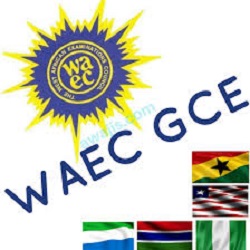Neco gce government answers 2022
*SECTION A*
(3a)
An electoral commission is defined as a body responsible for organizing and conduction of elections in a political system.
(3b)
[PICK ANY FIVE]
(i) Conduct of election: It is involved in the conduct, organisation and administration of elections in a country.
(ii) Registration of voters: The electoral commission is responsible for the registration of eligible voters for any election. 3. Division of a country into constituencies
(iv)Type of voting: The electoral commission decides the type of voting system to be adopted.
(v) Provision of electoral materials: It provides ballot boxes, ink, papers and other needed election materials.
(vi) Registration of political parties; It has the power to screen and register political parties for elections.
(vii) Display of voters’ register: It displays voters’ register after registration.
(viii) Revision of voters’ list: This is also one of the functions of the commission
(ix) Appointment and training of electoral officials: The commission is also mandated to recruit and train electoral officials for elections.
*NECO GOVERNMENT*
*SECTION A*
(4a)
A state is a geographical territory occupied by a group of people of different cultural background with an organised government.
(4b)
[PICK ANY FIVE]
(i) Permanence: The state is a permanent feature. Governments may change but the state remains.
(ii) Population: A state is occupied by people and these people make up the entire population, not animals. There is no limitation to the number of people making up a state.
(iii) Territory: A state has a defined territory with clear boundaries separating it from other states. e.g. Nigeria and Benin Republic. Waters and mountains and natural resources are part of the state.
(iv) Sovereignty: The state possesses the supreme power that enables it to make decisions and enforce such on the people.
(v)Government: Government is a machinery set up by the state to administer the state. Government takes the political, economic, cultural and other controls on behalf of the state.
*SECTION B*
(7)
(i) Political parties provided the leadership for constitutional development. Their members spearheaded agitation for constitutional reforms. For example, the 1946 Richard Constitution in Nigeria was criticized for lack of consultation.
(ii) The political parties initiated popular opposition against colonial government, for example, the Richards Constitution of 1951
(iii) They provided political education through rallies and newspapers owned by their leaders and these enlightened the masses on the deficiencies of colonial constitutions, e.g.. West African Pilot, Comet, Lagos Weekly Record, Nigeria Tribune, e.t.c.
(iv) Provision of leaders: The political parties provided leaders who attended constitutional conferences for the attainment of political independence, e.g. the ibadan,Conference of 1951 and the London Conferences of 1953 and 1957.
(v) Formation of government: They formed governments in their various regions under the 1951 constitution. This formed the basis for self-government in 1957 and 1959 and the eventual independence in 1960.
